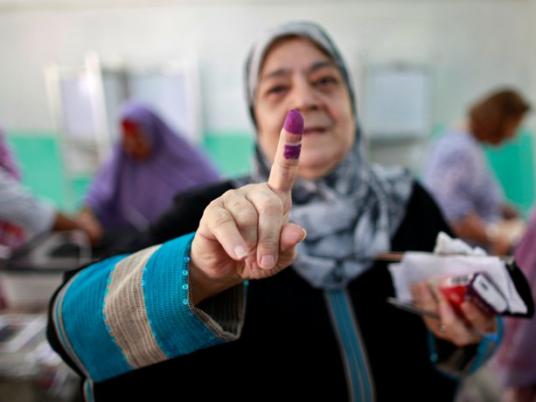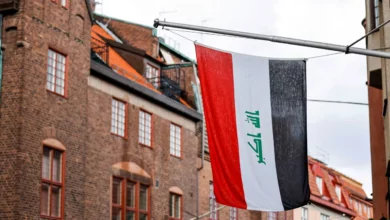From its vast headquarters on the Nile, the Egyptian Radio and Television Union still faithfully broadcasts public radio programs from nine networks. The programs cover news and culture, play Egyptian and foreign music, and feature talk shows and readings of the Quran, providing a wealth of entertainment and news for the Egyptian public. But is anyone still listening?
Since it’s first broadcast in May 1934, Egyptian public radio has factored heavily in the public consciousness. Political programming, particularly during the 1950s, was heavily used by the state to shape national identity. Egyptian public radio was also the voice of Pan-Arabism in its heydays in the 1950s and 1960s.
Programs like Men el-Hayah (From Real Life), Kelmeteen We Bass (Only Two Words), and ‘Ala el-Nassya (On the Street Corner); the voices of Abla Fadila, Fouad el-Mohandes, and Amal Fahmi implanted themselves into the minds of an entire Egyptian generation.
“My father used to tune in to el-Quran el-Karim every day at dawn and I used to listen during my childhood to programs like Abla Fadila and the voice of Fouad el-Mohandes,” said 40-year-old Ashraf Hanafy. “But now there is no time for radio.” Hanafy doesn’t even own a radio set; his children prefer television.
Facing competition from Egypt’s two private radio stations, as well as the popularity of television, public radio is steadily losing its once devoted audience.
Public channels include the music program 98.8, the European program 95.4, el-Sharq el-Awsat 89.5. The content of those channels bounce between culture, entertainment and religion, with some straightforward news bulletin. The political attire that the radio had in the 1950s and 1960s is gone by now.
But besides content, public radio suffers from rampant bureaucratic and budgetary problems.
Take the European Program, a public radio show that for years has appealed to Egypt’s expatriate community, as well as foreign local residents and Egyptians speaking languages other than Arabic, featuring shows in a variety of languages including French, German, Greek, Italian, and Armenian. Flagship shows like At Your Request and Patagonia were hugely popular, providing residents with a broader picture of the world outside of Egypt. But even the European Program is being foiled by internal issues. According to Bassma Habib, the current manager of the European Program, listenership in is decline. “I have been trying to improve the station’s frequency, I want to get better equipment instead of the old ones, I am trying to make the station stream online, but things are moving slowly and the budget is not enough,” Habib explains.
But she is hopeful. “Radio has its weight, it could never disappear, even with the luxury of everyone downloading their songs, or having their own iPods. People will always seek change and can tune in every once in a while to check what is new and what are the hot topics,” says Habib. “You need the change and radio provides a variety of talk shows, music, and entertainment for free. What attracts people is a radio talent, every anchor here is trying his/her best; we created new programs, we inserted services like airing the BBC World News.”
Besides occasionally listening to 95.4 and 98.8 when he doesn’t have his own music, Adham Zidan, a 22-year-old actor and musician, also listens to 104.2 Nile FM, one of the two privately owned radio channels in Egypt. Nile FM broadcasts foreign music and English-speaking shows and Nogoum FM broadcasts contemporary Arab pop music. They favor casual, occasionally racy (by Egyptian standards) banter that might be somewhat alienating to the Egyptian lower and lower middle class.
Without the bureaucratic and budgetary strains facing public radio, private channels Nogoum FM and Nile FM are relatively thriving, and leaving the devoted older generation of listeners in the dust. The channels started broadcasting in summer 2003, with a series of hip programming particularly targeting the younger generation. They capitalize on the the star-anchor image that has been monopolized by television. Their programming is naturally geared toward the upper class and upper middle-class. Nile FM features a morning show called Wake Up Call and an evening show called The Big Drive Home, bookends to a workday—and its commute—that simply doesn’t exist for most lower class Egyptians.
But not everyone sees the competition as unhealthy. “I think the introduction of these two stations has brought a big audience back to radio, both for their channels and others,” says Zidan. “I do not think they pose a threat. On the contrary, their existence encourages the public sector to promote its programs and rise to quality.”
29-yr-old Ahmed Khalifa, a filmmaker, agrees. “I am not sure that these two channels brought people back to loving radio, but they definitely brought young listeners to it. I don’t think they are a threat to public radio, since they target a different segment and feature monotonous programming.”
Yet private radio does not seem to offer a feasible alternative; obtaining a license to privately broadcast is close to being an impossibility in the wake of the state inclination to control the radio. The only two private stations in Egypt are strictly entertainment operations.
But if public radio—once the media of the masses—attempts to conform to the more casual, less conservative programming of private radio, it leaves the average Egyptian with nothing to appeal to them on the dial. The taxi driver has ample time to listen to the radio; his day, after all, is one long commute. But who is designing his Wake Up Call?




